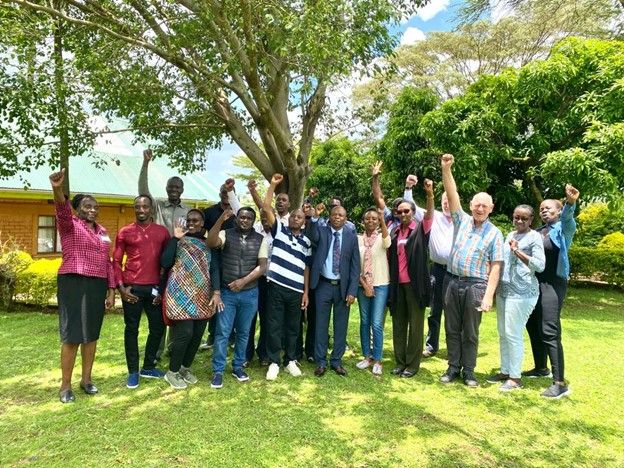From 29 to 31 March, Lake Victoria Basin Commission (LVBC) staff attended a workshop in Gisambai, Kenya to assess needs and define priorities to enhance key organizational processes of the LVBC. The aim is to foster LVBC’s performance as a service provider coordinating the management and development of the Lake Victoria Basin (LVB).
The workshop was supported by the GIZ Project “Strengthening the LVBC of the EAC in Integrated Management of Transboundary Water Resources” in the LVB. During the workshop, the LVBC team identified four key core processes to be enhanced, making use of internal resources and in cooperation with development partners.
The identified core processes are
- Resource mobilization and financial sustainability.
- Enhancing capacities of support processes (e.g. human resources management; procurement; systems and tools).
- Review of scope and mandate of the LVBC incl. of structural review incl IWRM Unit in the long term, and
- Stakeholder engagement & coordination (visibility and branding).
Measurable Accountability Plans (MAP) have been developed on the above-mentioned areas, covering short, mid, and long-term strategies and approaches. Focal point process managers and resources required have been identified.
At the closure of the workshop, an initial concept to prepare a “State of the Basin Report” about the status, challenges and way-forward in management the LVB by end 2024 has been presented to the participants.
Background:
The LVBC is a specialized institution of the EAC established under the 2003-EAC-Protocol for Sustainable Development of the Basin. The Basin is home for about 45 Mio. inhabitants living in the water catchments in the five LVBC Partner States (BI, KE, RW, TZ, UG). Lake Victoria, the second biggest freshwater lake in the world, is designated as an economic growth zone for the EAC of major importance, but it is also home to very precious environmental assets of the EAC, e.g. the famous Serengeti, and over 400 wetlands, preserving biodiversity, but also acting as carbon sinks mitigating negative impacts of climate change. The Basin is confronted with the effects of rapid urbanization going along with wide-spread pollution at environmental hot-spots, while non-sustainable agricultural practices are causing degradation of water catchment areas, all this threatening the long-term sustainability of environment in the Basin.
Find more information on the LVBC-IWRM project here.
Find more information on LVB IMRWP here.
